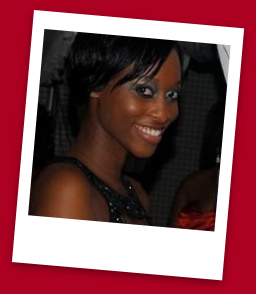Correspondence: 'It all begins with a little (self) R-E-S-P-E-C-T'
March 20th, 2011Poet, activist and development expert Simone Leid launched a new project last month to encourage women around the Caribbean to speak out about their experiences of discrimination. Leigh-Ann Worrell, a 23-year-old from St Thomas in Barbados, reports.
 “I am woman, hear me roar/in numbers too big to ignore,” sang a strong, invincible Helen Reddy four decades ago.
“I am woman, hear me roar/in numbers too big to ignore,” sang a strong, invincible Helen Reddy four decades ago.
Sadly, despite the strides Caribbean women have made, and continue to make, our roar is often reduced to a tiny whimper as we grapple with power relations in interpersonal relationships, street harassment and domestic violence.
While some may turn to the police, a pastor or a compassionate friend, others internalise the pain, and remain silent. But now, there is no need.
Trinidadian gender and development expert Simone Leid has conceptualised a way to allow Caribbean sisters to share, anonymously if they wish, their experiences with discrimination. It is called the WomenSpeak Project blog.
“In my regular conversations with women, I encountered many who felt that discrimination against women was not an issue,” Simone says, as she explains the rationale behind the project, which began in February.
“They felt that there was no need to have national policies on gender or special programs that sought to address women’s concerns. They felt that feminism and the women’s movement were a thing of the past.
“I found it disheartening, this lack of compassion and understanding, for the very real and very present violations that women in Trinidad and Tobago and the Caribbean endured on a daily basis,” Leid says.
“I also knew that if these same women were asked very specific questions about their experiences of sexism, assault, sexual harassment at work and on the street, coerced sex, the pressures of balancing work and family life, they would all have stories to tell.”
She therefore embarked on creating a space where women can share their stories, and read about the experiences of other women and empower them by showing there is a better way.
The blog is divided into several categories, including sex and relationships, discrimination in the workplace and street harassment, and allows women to share stories and videos.
“Each of us has the power to make even small changes that can improve our lives and the lives of other women. It’s not always an easy thing to do, but the more women learn about their rights, the more they are comfortable speaking out about issues of discrimination and the more the feel like they have community of support, the easier it will become,” Leid adds.
The activist and poet says that, since its launch, most of the posts have come from Trinidad and Tobago and the diaspora, with others from Barbados and Dominica, as the blog’s momentum continues to build.
As WomenSpeak grows, Leid hopes to add other dimensions.
“I expect that as the project grows and we can acquire some technical and financial support, we will begin to do some programming that will focus on helping women learn how to express themselves and advocate for themselves and other women.”
Simone hopes the initiative can accelerate social change by allowing women to think about their lives, while helping men to understand the issues women face.
“Together, men and women can create little springs of change, wherever they are – in their homes, in their workplaces, on the street – that will result in improved lives for women, men, boys and girls,” Leid says.
But the change may be an uphill battle, with gender biases, imbalances and socialisation some of the biggest obstacles.
“We need to awaken women’s consciousness and have them be part of making change happen in their own lives. It doesn’t mean you have to walk around with placards.
“It can be as simple as changing the language you use when you speak about other women, telling the guy next to you in the office to quit the sexist jokes, learning to say ‘no’ to unwanted advances, coercion, and manipulation from boyfriends.”
“Ok, so maybe that’s not so easy at first. I think there could be a whole training program dedicated to teaching women how to say ‘no’.”
But it all begins with a little (self) R-E-S-P-E-C-T, Leid continues. “Women need to value themselves and realise that when they feel uncomfortable, fearful or otherwise disturbed by a situation, that those feeling are valid and indicate something is wrong.
“They need to know they can say ‘no’, they can leave a bad situation, that they don’t need to be nice.
“Of course, some women, because of their economic, social, emotional or psychological status may be more vulnerable, but the threat of such violations is ever present, to varying degrees, in all women’s lives.”
……………………………………………………………………………………………………………………..
Note: The opinions expressed in this article are those of the author and do not necessarily represent the views of the Commonwealth Youth Programme. All articles are published in a spirit of improving dialogue, respect and understanding. If you disagree, why not submit a response?



